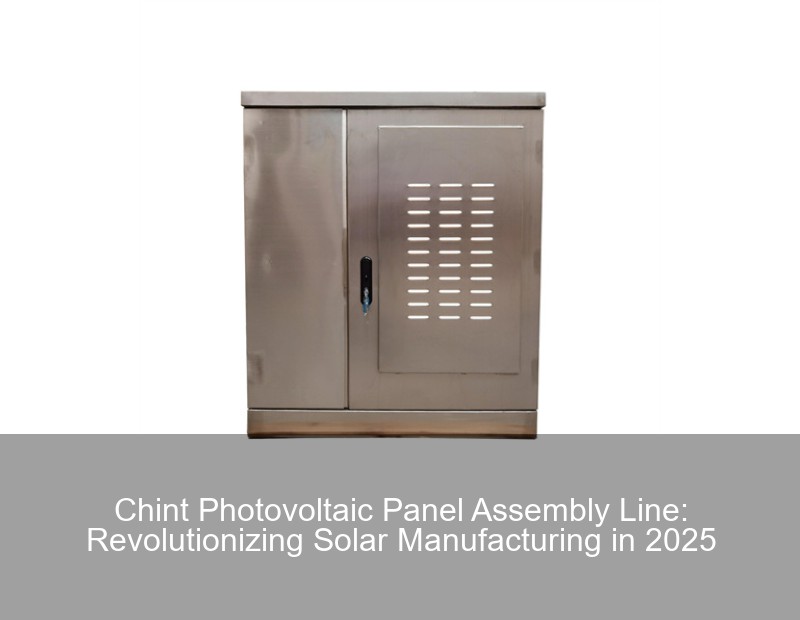Chint Photovoltaic Panel Assembly Line: Revolutionizing Solar Manufacturing in 2025

Why Solar Manufacturers Can’t Afford to Ignore Chint’s Assembly Innovations
With global solar installations projected to hit 380 GW by Q4 2025 , photovoltaic panel assembly lines have become the battleground for manufacturing supremacy. Chint Group’s photovoltaic panel assembly line stands out as a game-changer – but what makes it different from conventional production systems?
The Hidden Challenges in Solar Panel Manufacturing
Wait, no – let’s rephrase that. Why do even established manufacturers struggle with production efficiency? Consider these industry pain points:
- Average 2.8% cell breakage rates during stringing
- 6-hour downtime monthly for conventional laser scribing machines
- 15% energy loss in traditional tabbing processes
| Parameter | Traditional Line | Chint Assembly Line |
|---|---|---|
| Daily Output | 2,400 panels | 3,150 panels |
| Defect Rate | 1.2% | 0.45% |
| Energy Consumption | 0.78 kWh/panel | 0.52 kWh/panel |
Chint’s 5-Stage Production Breakthrough
Chint’s assembly line features what we might call “precision through predictive maintenance”. Their secret sauce lies in:
- AI-powered cell sorting with 99.97% color consistency matching
- Dual-track robotic stringers operating at 1,800 cells/hour
- Patented low-stress laminators (≤0.3% microcrack induction)
“Our 2024 upgrade reduced glass breakage by 40% through dynamic pressure calibration,” reveals Chint’s Chief Production Engineer in a recent Solar Manufacturing Today interview .
Case Study: Doubling Output Without Expanding Floor Space
When a Vietnamese manufacturer implemented Chint’s assembly system last month, they achieved:
- 79% reduction in junction box installation time
- 22% lower labor costs through automated EL testing
- 1.5-year ROI despite initial $2.8M investment
The Sustainability Angle You Might Be Missing
Chint’s assembly line isn’t just about speed – it’s about smarter resource use. Their closed-loop silicon recycling system recovers 92% of kerf loss, potentially adding $140,000 annual savings for mid-sized plants.
Future-Proofing Your Production: What Comes Next?
As we approach Q4 2025, Chint plans to integrate quantum dot alignment sensors for:
- Real-time soldering quality analysis
- Predictive component failure alerts
- Automatic warranty compliance documentation